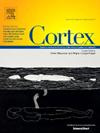遗忘的善变:患者群体何时、为何以及如何存在差异(或不存在差异)?
IF 3.2
2区 心理学
Q1 BEHAVIORAL SCIENCES
引用次数: 0
摘要
这篇评论将回顾最近关于患者群体遗忘率的发现,包括一些较早的、较少被引用的研究的观察结果。它将引起人们对研究(和评论)的关注,这些研究表明,相对于基于识别或熟悉的记忆,被回忆或回忆的记忆遗忘得更快。其次,它将关注遗忘率研究结果的可变性,包括组内个体之间表现的可变性,个体在不同测试阶段和/或相隔多年测试时的不一致性,以及等效或接近等效研究之间的不一致性。第三,它将考虑发现早期遗忘或进行性/定量记忆丧失的研究与那些表明遗忘率后来发生“定性”变化的研究之间的区别。后一种模式最常见于癫痫病例,当适当考虑到对照者表现的变化时,这种情况可能相对较少,而且效应量可能很低。我们还需要对这种延迟(或“后来”)遗忘进行充分的神经生物学解释。第四,将回顾Sergio Della Sala、Alan Baddeley及其同事的主要贡献,提请我们注意实验设计中的重要因素,如重复练习的存在或不存在,要点与次要细节的回忆,以及不同初始学习水平的平行遗忘曲线。论文最后总结了以下研究的主要发现:(i)健康参与者(包括对正常衰老的研究),(ii)局灶性病变引起的记忆障碍患者,(iii)阿尔茨海默病和轻度认知障碍患者,以及(iv)癫痫患者。本文章由计算机程序翻译,如有差异,请以英文原文为准。
The fickleness of forgetting: When, why, and how do patient groups differ (or not)?
This commentary will review recent findings regarding forgetting rates in patient groups, including observations from some older, less cited studies. It will draw attention to studies (and reviews) indicating faster forgetting of recalled or recollected memories, relative to recognition or familiarity-based memory. Secondly, it will focus upon the variability of findings in forgetting rate studies, including variability of performance between individuals within groups, inconsistency by individuals across test sessions and/or when tested many years apart, and discordance between equivalent or near-equivalent studies. Thirdly, it will consider the distinction between studies finding early forgetting or progressive/quantitative memory loss and those suggesting a later, ‘qualitative’ change in forgetting rate. The latter pattern, most commonly seen in epilepsy cases, may be relatively infrequent when appropriate account has been taken of variation in controls' performance, and effect sizes can be low. There is also a need for an adequate neurobiological account of this delayed (or ‘later’) forgetting. Fourthly, the major contributions of Sergio Della Sala, Alan Baddeley, and their colleagues will be reviewed, drawing our attention to important factors in experimental design, such as the presence or absence of repeated practice, recall of gist versus peripheral detail, and parallel forgetting curves from different levels of initial learning. The paper concludes with a summary of the major findings in (i) healthy participants (including studies of normal ageing), (ii) memory-disordered patients arising from focal lesions, (iii) Alzheimer and MCI patients, and (iv) epilepsy patients.
求助全文
通过发布文献求助,成功后即可免费获取论文全文。
去求助
来源期刊

Cortex
医学-行为科学
CiteScore
7.00
自引率
5.60%
发文量
250
审稿时长
74 days
期刊介绍:
CORTEX is an international journal devoted to the study of cognition and of the relationship between the nervous system and mental processes, particularly as these are reflected in the behaviour of patients with acquired brain lesions, normal volunteers, children with typical and atypical development, and in the activation of brain regions and systems as recorded by functional neuroimaging techniques. It was founded in 1964 by Ennio De Renzi.
 求助内容:
求助内容: 应助结果提醒方式:
应助结果提醒方式:


